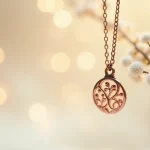Overview of Sustainable Design in Fashion Education
The integration of sustainability in contemporary fashion education is a crucial evolution addressing urgent environmental concerns. As the fashion industry shifts towards eco-friendly practices, UK fashion schools are leading this charge by reshaping their curricula. This emphasis on sustainable fashion education ensures that upcoming designers are equipped not only with design skills but also with a commitment to ethical practices.
UK fashion schools now offer specialized programs that combine traditional design methods with innovative sustainable practices. These programs often include courses on eco-materials, ethical sourcing, and the circular economy in fashion, providing students with a comprehensive insight into sustainable design.
Also to read : Discover Liverpool’s Hidden Gems: The Ultimate Guide to Unique Bohemian Dresses for Women at Boutique Hotspots!
A significant component of these programs is interactive workshops, which are pivotal in offering hands-on learning. Through these workshops, students gain practical insights into sustainable practices. Workshops often include activities like upcycling projects, dyeing with natural pigments, and creating designs from recycled materials, fostering a tangible understanding of sustainability.
Such engagement not only enhances creativity but also instills a sense of responsibility and a deeper appreciation for sustainable fashion. By experiencing these practices firsthand, students can become future leaders who advocate and implement eco-friendly designs effectively.
Also to read : Discover Innovative Sustainable Wool Farming Practices in the UK
List of UK Fashion Schools Offering Workshops
In the UK, various fashion schools are pioneering sustainable design programs with engaging fashion workshops. These opportunities provide budding designers with essential practical skills and knowledge.
Fashion School A
Fashion School A offers a robust sustainable design program known for its innovative approach. Interactive workshops here include upcycling techniques, where students transform unwanted garments into new, fashionable pieces. The school also emphasizes natural dyeing workshops, giving students hands-on experience in eco-friendly practices. Enrolling requires an application demonstrating a commitment to sustainability and a portfolio showcasing creative potential.
Fashion School B
At Fashion School B, the curriculum is deeply rooted in sustainability. Students engage in workshops that focus on ethical sourcing and zero-waste patterns. Participants frequently highlight the collaborative environment, enhancing their learning and design innovation. Admission involves submitting an online form and attending an interview to discuss the applicant’s passion for sustainable fashion.
Fashion School C
Fashion School C highlights a unique emphasis on circular fashion. Hands-on learning experiences include creating garments from recycled materials and understanding garment lifecycle assessments. Prospective students need to submit a creative project display and fulfill prerequisites detailed on the school’s official website, which fosters an intuitive approach to sustainable design.
Focus on Interactive Workshops
Interactive workshops hold a vital role in the landscape of fashion education, especially when focusing on sustainability. These workshops are structured to provide students with hands-on experience, a key element in understanding sustainable practices. Typical formats include engaging activities like fabric upcycling, where students learn to repurpose materials into new designs, and natural dyeing processes that emphasise eco-friendly methods.
The significance of these workshops lies in their ability to transform theoretical knowledge into practical application. Through direct involvement, students develop a comprehensive understanding of sustainability, honing technical skills that are crucial in modern fashion design. This approach bridges the gap between concept and execution, enabling students to explore the practical side of their innovative ideas.
Student testimonials often highlight the empowering nature of these experiences. Many describe workshops as eye-opening moments that reshape their perspective on design and sustainability. They appreciate the tangible challenges posed and the creative problem-solving required. This format not only nurtures a deeper appreciation for sustainable fashion but also equips students with industry-relevant skills, preparing them to become leaders who can drive positive change in the industry.
Significance of Sustainability in Fashion
In today’s world, sustainability in fashion is not merely a trend but a necessary shift. Industry recognition of eco-friendly practices is transforming how fashion schools develop their programs. Students are taught the importance of environmentally responsible choices, a crucial step as they prepare to become influential designers. As eco-friendly practices take center stage, UK fashion schools robustly integrate these into their educational offerings by prioritizing materials with low environmental impact and advocating ethical production methods.
The role of future fashion leaders in promoting sustainability is pivotal. By embracing sustainability in fashion, tomorrow’s leaders can reshape the industry’s narrative towards a more responsible future. Schools are equipping students with knowledge and skills to advocate for the minimalist carbon footprint in design processes. As these students transition into professionals, they serve as catalysts for widespread adoption of eco-friendly practices within the industry, reflecting a growing consumer preference for ethical brands.
Enabling students to make informed decisions about sustainability equips them to influence industry trends, cultivating an enlightened generation of designers that prioritizes the health of our planet.
Testimonials from Students
In the dynamic world of fashion education, student experiences offer invaluable insights. Student testimonials frequently highlight the transformative impact of interactive workshops. These hands-on engagements are not just about crafting garments but moulding perceptive designers who understand sustainable fashion deeply. For instance, Sarah, a recent graduate, spoke about how workshops helped her bridge theory with practice, enhancing her confidence in using eco-friendly practices.
These workshops are often described as enlightening. Many students, like Alex, have found that practical challenges test their creativity while enforcing the importance of sustainability. They enhance problem-solving skills crucial for fashion education experiences. Alex shared that working with recycled materials in workshops not only honed his design skills but also instilled a profound respect for sustainable design norms.
Feedback from these interactive sessions indicates a growing appreciation for sustainability among students. They recognize the necessity of such skills in the modern industry landscape. Such workshop feedback reveals how critical these experiences are in shaping future leaders in fashion. The emphasis on sustainable practices marks a shift towards a more thoughtful and responsible industry.
Enrollment Process and Opportunities
Enrolling in sustainable design programs at UK fashion schools requires careful planning. Each institution has unique requirements, but there are commonalities among them. Generally, applicants must submit a portfolio showcasing their creative potential and a statement highlighting their commitment to sustainability. Some schools may also require an interview or a project display to evaluate a candidate’s hands-on skills in eco-friendly practices.
Key deadlines vary by school, so it’s crucial for prospective students to consult each institution’s official website for precise dates. Applications typically involve essays or statements of purpose that detail the applicant’s passion for sustainability in fashion and their career aspirations in the field. Understanding these elements can profoundly influence the enrollment process.
Moreover, schools often offer additional resources like webinars, open days, and Q&A sessions for prospective students, providing valuable insights into their fashion programs. These initiatives not only assist applicants in preparing their applications but also offer a glimpse into the innovative curriculum and interactive methodologies employed, setting the foundation for a successful learning journey in sustainable fashion education.



